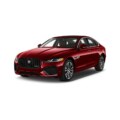Porsche 911 GT3

















Specifications
Overview
| Models Car models are the different versions or designs of cars made by a manufacturer, each with unique features, styles, and configurations. | 911 GT3 |
| Year typically refers to the model year of a vehicle, which indicates its design and production cycle rather than the actual manufacturing date. | 2025 |
| Drive Type A car's drive type refers to which wheels receive power from the engine. For example, front-wheel drive (FWD) powers the front wheels, rear-wheel drive (RWD) powers the rear, and all-wheel drive (AWD) or four-wheel drive (4WD) power all four wheels. | rear wheel drive |
| Total Seating Car total seating refers to the maximum number of passengers a car can accommodate, including the driver. | 2 |
| Cargo Capacity Car cargo capacity is the measurement of the space available in a vehicle for storing items, typically given in cubic feet or liters. | 4.8 cu.ft. |
| Curb Weight Car curb weight is the weight of a vehicle with all standard equipment, fluids, and a full tank of fuel, but without passengers or cargo. | 3,278 lbs. |
| Basic Warranty A Basic Warranty is a manufacturer’s promise to repair or replace parts of a product if they prove defective within a specified period. | 4 yr./ 50,000 mi. |
| Dealerships Car dealerships are businesses that sell new or used vehicles directly to consumers, often providing financing, trade-ins, and maintenance services. |
United States Houston, Texas, 3 |
Fuel & MPG / Battery & Range
| Fuel type Fuel type refers to the kind of energy source used to power an engine or appliance, such as gasoline, diesel, electricity, or alternative fuels. | Premium unleaded (required) |
| Range in miles (city/hwy) Car range refers to the distance a vehicle can travel on a full tank of fuel (or a full battery charge) and is usually measured separately for city driving—which often gives a lower range due to stop-and-go traffic—and highway driving, where steady speeds generally result in a higher range. | 0/0 mi. |
| Fuel tank capacity A car's fuel tank capacity is the maximum amount of fuel it can hold, usually measured in liters or gallons. | 16.6 gal. |
Engine
| Base engine size The car’s base engine size usually refers to its engine displacement, which is the total volume of all the cylinders (measured in liters or cubic centimeters). | 4.0 L |
| Cylinders Car cylinders are the chambers in an engine where the combustion of fuel occurs, driving pistons to create mechanical power. | Flat 6 |
| Base engine type A car’s base engine type refers to its fundamental design—typically the configuration (like inline, V-type, or boxer) and the fuel it uses (gasoline, diesel, etc.). | Gas |
| Horsepower Car horsepower is a unit of power that measures how much work an engine can perform, with one horsepower roughly equal to 746 watts. | 502 hp |
| Torque Car torque is a measure of the engine's twisting force, indicating its ability to accelerate the vehicle and overcome resistance. | 331 lb-ft |
| Valves Car valves are engine components that control the intake of air and fuel and the exhaust of combustion gases. | 24 |
| Cam type generally refers to the configuration of an engine’s camshaft(s). For example, engines can have a single overhead cam (SOHC) or dual overhead cam (DOHC) layout, each affecting valve timing and engine performance differently. | Double overhead cam (DOHC) |
| Valve timing Valve timing is the process of precisely controlling when the engine's intake and exhaust valves open and close to optimize performance and efficiency. | Variable |
| Direct injection Direct injection is a fuel system that injects fuel directly into the engine’s combustion chamber, which improves efficiency, power, and fuel economy. | Standard |
Towing & Hauling
| Max Payload Capacity | 650 lbs. |
Drivetrain
| Transmission A car transmission is the system that transfers power from the engine to the wheels, using different gear ratios to control speed and torque. | 7-speed automated manual |
| Drive Type A car's drive type refers to which wheels receive power from the engine. For example, front-wheel drive (FWD) powers the front wheels, rear-wheel drive (RWD) powers the rear, and all-wheel drive (AWD) or four-wheel drive (4WD) power all four wheels. | Rear wheel drive |
| Rear limited slip differential | Standard |
Suspension
| Four-wheel independent suspension | Standard |
| Front and rear stabilizer bar | Standard |
Dimensions
| Length | 179.9 in. |
| Overall width with mirrors | 80.0 in. |
| Overall width without mirrors | 72.9 in. |
| Height | 50.4 in. |
| Wheelbase A car's wheelbase is the distance between the centers of its front and rear wheels. | 96.7 in. |
| Cargo capacity, all seats in place | 4.8 cu.ft. |
| Maximum payload | 650 lbs. |
| Maximum cargo capacity | 4.8 cu.ft. |
| Manufacturer 0-60 mph acceleration time | 3.2 seconds |
| Turning circle The car turning circle is the smallest circular path a vehicle can complete, reflecting its maneuverability. | 34.1 ft. |
| Curb Weight Car curb weight is the weight of a vehicle with all standard equipment, fluids, and a full tank of fuel, but without passengers or cargo. | 3,278 lbs. |
| Angle of approach | 6.3 degrees |
| Angle of departure | 9.4 degrees |
| Gross weight Car gross weight is the total weight of the vehicle including passengers, cargo, fuel, and all additional equipment. | 3,929 lbs. |
| Country of final assembly A car’s country of final assembly is the nation where the vehicle is put together into its final form, regardless of where its parts were produced. | Germany |
Front Seat Dimensions
| Leatherette | Standard |
| Height adjustable passenger seat | Standard |
| Multi-level heated driver seat | Standard |
| Multi-level heated passenger seat | Standard |
Rear Seat Dimensions
| Rear leg room | N/A |
In-Car Entertainment
| Total speakers | 8 |
| AM/FM stereo | Standard |
| Android Auto/Apple CarPlay | Standard |
| USB connection | Standard |
| USB with external media control | Standard |
| Satellite radio satellite radio | Standard |
Power Feature
| 2nd row fixed glass moonroof | Standard |
| Reverse tilt dual mirrors provides curb view when vehicle in reverse | Standard |
| Heated mirrors | Standard |
Instrumentation
| Trip computer | Standard |
| Compass | Standard |
| Tachometer | Standard |
| External temperature display | Standard |
| Clock | Standard |
Tires & Wheels
| Painted alloy wheels | Standard |
| Tires Size | 315/30R21 |
| Wheels Size | 21 x 12.0 |
| Temporary spare tire | Standard |
Telematics
| Stolen Vehicle Tracking/Assistance | Standard |
Warranty
| Basic | 4 yr./ 50,000 mi. |
| Drivetrain | 4 yr./ 50,000 mi. |
| Rust | 12 yr./ unlimited mi. |
| Roadside Assistance | 4 yr./ 50,000 mi. |
PROS
- Precision Engineering: Lightweight design and aerodynamic efficiency enhance the driving experience.
CONS
- Premium Fuel Required: Needs high-octane fuel, increasing long-term running costs.
The 2025 Porsche 911 GT3 – a rear-wheel-drive sports car with a 4.0L flat-six engine pushing 502 hp. Accelerate from 0-60 mph in just 3.2 seconds with race-inspired handling and style. With premium design, agile suspension, and a 7-speed automated manual, it’s built for performance. Sleek German engineering meets precision on every curve — pure driving pleasure awaits.
Your question is: Porsche 911 GT3?
Which question will you have about this car? Let’s justify these. There, we are including the major questions and answers about this car. So, let’s start now.
What engine does the 911 GT3 use?
The 2025 911 GT3 is powered by a 4.0-liter flat-six engine delivering 502 horsepower and 331 lb-ft of torque.
How fast is the 2025 Porsche 911 GT3?
It accelerates from 0 to 60 mph in just 3.2 seconds, making it one of the fastest in its class.
Is the 2025 911 GT3 rear-wheel drive or all-wheel drive?
The 2025 GT3 is a rear-wheel-drive model, enhancing track-focused driving dynamics.
What is the fuel economy of the 2025 Porsche 911 GT3?
While official MPG figures aren’t listed, it requires premium unleaded fuel with a 16.6-gallon tank.
What are the dimensions of the 2025 911 GT3?
It measures 179.9 inches in length, 72.9 inches in width (excluding mirrors), and 50.4 inches in height.
How much cargo space is available in the 2025 Porsche GT3?
The GT3 offers 4.8 cubic feet of cargo capacity, prioritizing performance over storage.
Where is the 2025 Porsche 911 GT3 built?
The vehicle is assembled in Germany, reflecting Porsche’s heritage in precision engineering.


















